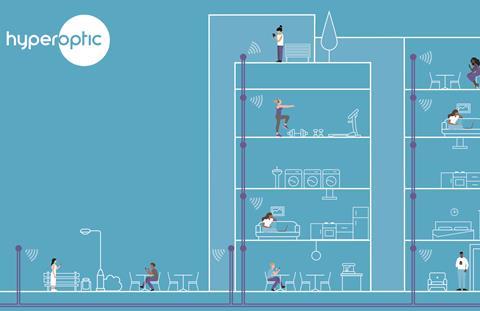Historically high rates of inflation were expected to be short-lived, but their persistence has led to a prolonged cost-of-living crisis, with interest rates also on the up.

So what has the broadband industry done to alleviate these pressures?
Unfortunately, many broadband operators have made matters worse for their customers in the last few months by seeing through large price increases, mid-contract.
Householders – whether they own or rent – are accustomed to committing to utility price fixes for 1, 2 or more years. This approach works for millions of people whether they’re paying for gas, electricity, water or broadband. It makes budgeting more predictable and helps when comparing deals from different providers.
Not so for the 19 million broadband subscribers who in April were served with mid-contract price rises of around 15%, without being given the right to exit the contract with no penalty. Was it legal? Yes. Was it ethical? That’s a matter of opinion. But the likes of BT, EE, Plusnet, TalkTalk, Vodafone and others had no qualms about following through on the small print of their agreements, even though – as Hyperoptic’s own commissioned research discovered – most (about 60%) customers were simply unaware they’d signed up to such a clause.
The regulator, Ofcom, has since opened an investigation into this practice – specifically whether enough was done by broadband service providers to communicate the existence of mid-contract price changes to customers before getting them to sign deals. We await the outcome of their review, hopefully before the next inflationary increases take effect in April 2024.
We’ve campaigned and lobbied for rule changes and more transparency, but we’ve yet to see if the practice will change. Our latest research found that 90% of consumers think mid-contract price rises should be banned. And two-thirds of people who signed up to a new broadband provider in Q1 2023 (ahead of the April 2023 price rises) say they regretted their decision as soon as they found out about the increase.
Hyperoptic has never hiked its prices mid-contract – we don’t agree with this unfair practice and instead want to focus on doing the right thing by our customers. We believe that, if a provider chooses to hit customers with a mid-contract price rise, those same customers should be free to switch elsewhere without paying early termination charges.
Putting aside the issues of mid-contract price increases for a moment – and bearing in mind this is limited to only some providers, albeit mostly the very largest – the wider broadband industry has acted in other ways to alleviate cost-of-living pressures. For example, the introduction of more social tariffs; special packages offered to qualifying customers at a discounted rate. Discounts can be up to 40–50% in some cases, with eligibility criteria covering people on universal credit and other benefits. Unfortunately, not all operators offer them, and discount levels differ.
The uptake rate of social tariffs is much lower than it could be (about 5% according to Ofcom). Many customers are unaware of the money they could save or feel stigmatised by the initiative. Citizens Advice estimates that up to 1 million people may have cancelled their broadband in the last year because of the high cost of living.
We at Hyperoptic have worked hard to get a positive message out there about social tariffs. Our Fair Fibre 150Mb plan is the fastest broadband available on a social tariff – more than twice the speed of any plan the major providers offer. We believe Gigabit-speed broadband is important, whoever you are. As our founder and CEO, Dana Tobak, says: “Just because a family is eligible for a social tariff, doesn’t mean they should be limited to slow speeds.” Last November we permanently cut its price from £25 to £20 a month.
There are numerous factors to weigh up when making decisions about broadband provider. Availability, performance (speed), support, reputation and customer reviews all matter, but price comes into sharper focus when there are cost of living pressures to consider.
That’s why sharp practices need to be called out and subscribers should shop around for the best value for money.





























No comments yet